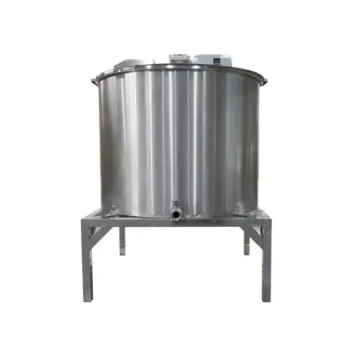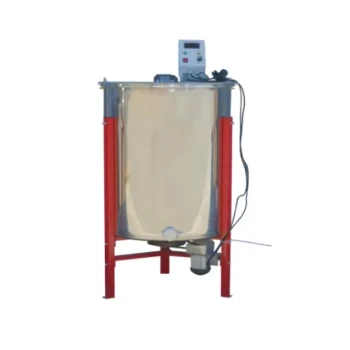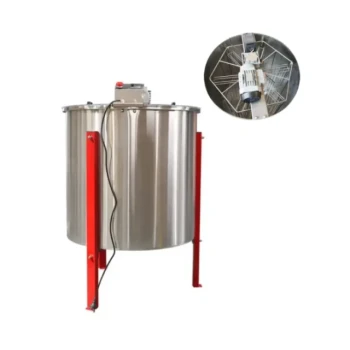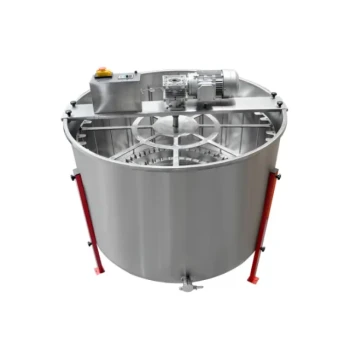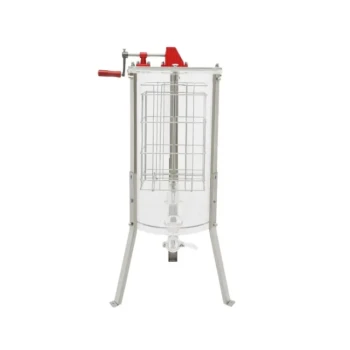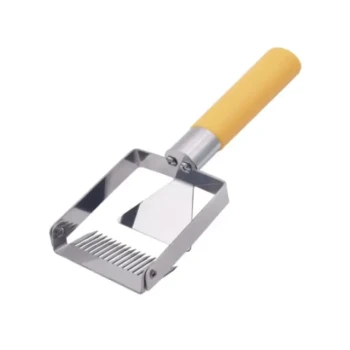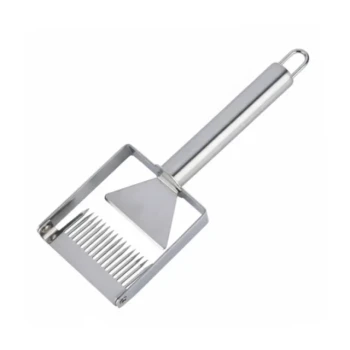The primary advantage of a radial honey extractor is its exceptional efficiency. By arranging frames like the spokes of a wheel, it uses centrifugal force to extract honey from both sides of the comb simultaneously. This design eliminates the need to stop and flip frames midway through the process, drastically reducing the time and labor required for honey harvesting.
The choice of a honey extractor is fundamentally a trade-off between speed, cost, and the scale of your beekeeping operation. Radial extractors are built for speed and are the superior choice for beekeepers with multiple hives, while other types serve smaller-scale or more delicate needs.
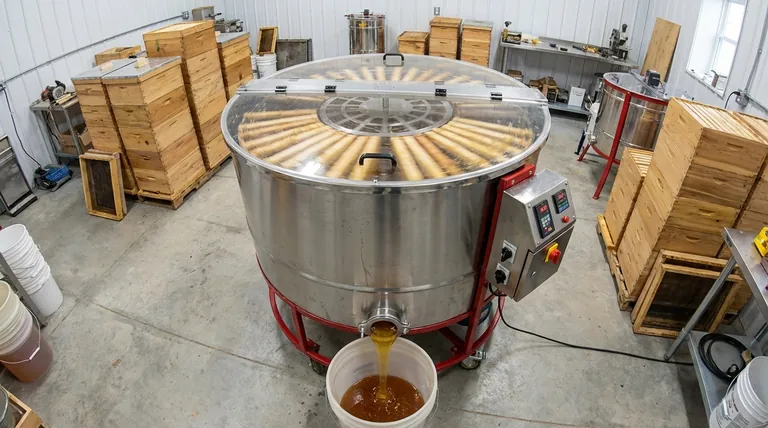
How Radial Extractors Maximize Efficiency
The design of a radial extractor is engineered for one primary goal: speed. Understanding its mechanics reveals why it is the preferred tool for serious hobbyists and commercial beekeepers.
The Power of Centrifugal Force
A radial extractor positions frames vertically, with the top bar of the frame facing the outer wall of the drum. When the extractor spins, centrifugal force pulls the honey straight out from the cells on both sides of the comb at the same time.
Eliminating the "Flip"
This simultaneous extraction is the key time-saver. In contrast, tangential extractors place the frame flat against the drum wall, extracting honey from only one side at a time. This requires you to stop the machine, flip each frame manually, and then spin them a second time.
The Impact on Workflow
For a beekeeper with more than a few hives, the time saved by not flipping frames is significant. An extraction that might take hours with a tangential model can often be completed in a fraction of the time with a radial extractor.
Choosing Your Power Source: Electric vs. Manual
Radial extractors are available in both motorized (electric) and hand-crank (manual) versions, each serving different needs and budgets.
The Case for Electric Models
Electric radial extractors represent the peak of harvesting efficiency. They require minimal physical effort and are ideal for beekeepers managing large numbers of hives.
Most motorized units feature variable speed control, which is crucial for preventing "blowouts"—where the force of extraction destroys the wax comb. You can start slowly to extract the heavy honey and then increase the speed to finish the job.
The Role of Manual Models
A manual radial extractor offers a significant speed advantage over a tangential model without the higher cost of a motorized unit. It still requires physical effort to turn the crank but preserves the core benefit of extracting from both sides at once. This is an excellent middle ground for a growing apiary.
Understanding the Trade-offs and Limitations
While powerful, radial extractors are not the perfect solution for every situation. Objectivity requires acknowledging their specific limitations.
Comb Condition is Critical
The force generated by a radial extractor can be too powerful for old, brittle, or uncvenly drawn-out combs. The pressure can cause the wax foundation to break apart inside the extractor. Tangential models, being gentler, are often a better choice for harvesting from more fragile combs.
The Initial Cost
Radial extractors, particularly electric models, are a larger financial investment than tangential extractors. Their higher capacity, complexity, and (for electric models) inclusion of a motor contribute to a higher price point.
When a Tangential Extractor is the Better Tool
A tangential extractor is often the ideal choice for a beginner or a beekeeper with only one or two hives. They are less expensive, simpler, and gentler on the combs, making them a safer and more economical entry point into honey harvesting.
Making the Right Choice for Your Apiary
Your decision should be guided by the scale of your operation, your budget, and the condition of your equipment.
- If your primary focus is maximum speed and efficiency for many hives: An electric radial extractor is the definitive choice.
- If your primary focus is a budget-conscious upgrade for a growing apiary: A manual radial extractor provides a significant time-saving benefit over tangential models.
- If your primary focus is cost or you have fragile combs: A tangential extractor is the safer, more economical starting point.
Ultimately, selecting the right extractor is about aligning the tool's capabilities with your specific beekeeping goals.
Summary Table:
| Feature | Radial Extractor | Tangential Extractor |
|---|---|---|
| Extraction Method | Both sides of the comb at once | One side at a time (requires flipping) |
| Best For | Speed & efficiency for multiple hives | Beginners or beekeepers with 1-2 hives |
| Comb Gentleness | Can be harsh on fragile, old combs | Gentler, safer for delicate combs |
| Typical Cost | Higher initial investment | More economical entry point |
Ready to Upgrade Your Honey Harvesting?
As a commercial beekeeper or distributor, your time is valuable. HONESTBEE supplies the high-quality, durable radial extractors that apiaries like yours rely on for maximum efficiency. Our wholesale-focused operations ensure you get the professional-grade equipment you need.
Contact us today to discuss your specific needs and see how we can support your beekeeping success.
Visual Guide

Related Products
- HONESTBEE 72 Frame Industrial Electric Honey Extractor for Beekeeping
- 32 Frame Commercial Electric Honey Extractor for Beekeeping and Honey Production
- electric honey extractor honey centrifuge 3 frame honey extractor stainless steel honey frame extractor
- Electric 8 Frame Honey Spinner Extractor Equipment for Beekeeping
- HONESTBEE 3-Frame Manual Acrylic Honey Extractor
People Also Ask
- How long does it take to extract honey with an electric extractor? Cut extraction time to minutes.
- Why do beekeepers have to lift a lot of weight at the end of a growing season? The Reward of a Heavy Harvest
- What to do with wet frames after extracting honey? Let Your Bees Clean Them for Best Results
- How long does an electric honey extractor take? Drastically Cut Your Harvest Time & Effort
- What are some tips for efficient electric honey extraction? Optimize Your Workflow for Maximum Yield

